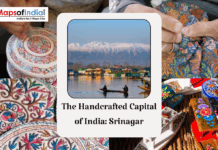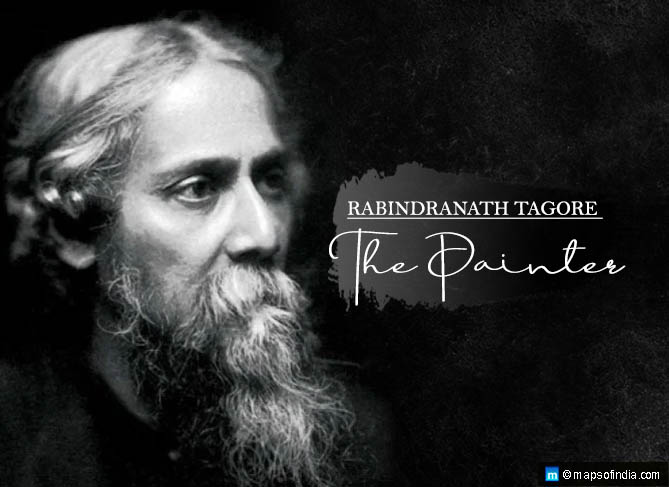Hugely opposed by the Hungry Generation poets like Sunil Gangopadhay, Rabindranath Tagore has ruled the world of Bengali aesthetics for over a hundred years. His 150th birth anniversary was celebrated with élan all over the world. Tagore has to his credit, a huge volume of songs, essays, short stories, and novellas. He was also a prolific painter. It was Tagore who put Rousseau’s naturalistic philosophy of education into practical application, first in India, through the foundation of the Vishwa Bharati University that boasted of open-air classrooms. Tagore himself was a subscriber to the romantic ideology that dominated the nineteenth century. To this was added a patriotic fervor, which caused him to refuse the Knighthood offered to him by the British Government, as a protest against the Jallianwalla Bagh massacre. Tagore was the first Nobel Laureate in Asia in 1913, receiving the prize for his immortal creation Gitanjali (Song Offerings). He achieved this as still being a native subject to the then ruling British Empire in India.
The Vishwa Bharati University,at that point, had just been established and was going through a pecuniary crisis. When the prize money of Rs 20 lakh was announced to Tagore by the Nobel Committee, it is said that Tagore wryly remarked, “At last there is provision for the money to build the drains”. Over the years, the charm and erudition of Tagore’s literature has attracted foreigners from diverse countries to come to the Vishwa Bharati and learn the Bengali language. Gulzar, the renowned Urdu poet, is known to be a huge lover of Tagore’s works. Rabindranath Tagore was a multifaceted genius and a study in himself. It is evidently very hard to surmise such a man in a few paragraphs.
Sweden-India Nobel Memorial week organized by the Swedish Embassy
For the seventh year in a row, the Swedish Embassy is proactive in the celebration of the Sweden-India Nobel Memorial Week in several major cities of India – New Delhi, Ahmadabad, Chennai, Kolkata, Hyderabad, Bangalore, Pune and Mumbai. This yearly high-profile event seeks to promote Swedish interests and reflections in India. Symposiums, conventions and discussions involving Indian policymakers, educationists and researchers, are some of the minutes of this event, inclusive of competitive programs for students, cultural programs and exhibitions. Sweden Education Days are harmonized in cities like Hyderabad, Chennai and Bangalore, which also witness the participation of various Swedish educational institutes, including the Lund University of Sweden. However, this Sweden-India Nobel Memorial week has a special feature – the celebration of the centenary of the Nobel Prize awarded to Rabindranath Tagore.
Activities marking the celebration of the centenary
The celebrations for this auspicious event are being ushered by the Swedish Embassy on October 25 and 26, 2013, in Kolkata, the hometown of the Nobel Laureate Rabindranath Tagore, which will further continue in Delhi from November 8, 2013. The celebrations will be augmented with the showcasing of authentic text of Gitanjali that was recommended for the Nobel Prize. This has been exclusively arranged by the Swedish Embassy, and the event will be inaugurated by the Swedish Ambassador to India, Mr. Harald Sandberg. A panel discussion is proposed to be organized on the October 25, 2013, which will focus on the illimitable personality of Tagore as a writer, poet, and humanist, as well as the importance of his literary contribution in today’s perspective. The said panel will be attended by eminent personalities like the Tagore expert Dr. Radha Chakravarty, filmmaker Gautam Benegal, Swedish Tagore scholar Dr. Olavi Hemmila from the University of Dalarna, and academicians like Prof. Sanjukta Das from Calcutta University and Prof. Anand Lal from the Jadavpur University. This will be followed by a concerted theatrical representation of Tagore’s Nobel Prize Award speech, specially organized by the famous theatre personality Parnab Mukherjee. The following day, a workshop designated ‘Spark of Creativity’ will be organized by Tobias Degsell, curator of the Nobel Museum and also a prominent educationist from Sweden. The workshop will address young professionals, entrepreneurs and businessmen, and guide them to be more creative, innovative and resourceful. A photo exhibition, ‘Sweden through Indian Eyes’, will showcase a photographic travelogue of Sweden as captured by the lens of the Kolkata-based photographer Abhijit Chakraborty, who incidentally, held the first place in last year’s photo competition, ‘Swedish Innovations – Indian Interpretations’. The program will also include the official publication of a book titled Tagore in Sweden – 1921 and 1926, by the Swede academic Dr. Olavi Hemmila, commemorating the two Sweden visits of Tagore. The unraveling of a sand statue of Tagore by the sculptor Sudarshan Pattnaik in Puri, Odisha, on November, 12, 2013, is also a part of the celebrations.
The zenith of the celebration, however, is the conversion of a wall in the Esplanade Metro Station (one of the busiest metro stations in Kolkata), into a ‘Nobel Memorial Wall’. The said wall will be a tribute to the Indian Nobel Laureates like Tagore, the physicist C. V. Raman, and the economist Amartya Sen. The wall, a permanent structure, will in fact, be a monument, recollecting the brilliant accomplishments of the Nobel Laureates of India. There are plans to erect two impermanent walls at the Gitanjali (designated after Tagore’s Noble Prize winner piece of literature) and Shyam Bazaar (nearest station to Tagore’s ancestral home) Metro stations, which will be on display for a week.
Conclusion
As mentioned before, Rabindranath Tagore is an overwhelming personality and cannot be captured in such a small article. In fact, Tagore’s literary works were instrumental in reshaping the Bengali literature and gave an international dimension to the Bengali language. An advocator of the Bengal Renaissance, Tagore was not only the first in Asia to win Nobel Prize for his work, but also was the first non-European to be a Nobel Laureate in literature. So far we have talked about how the Award Centenary of Tagore is being celebrated by the Swedish Embassy and our country. If anyone is interested in the flip side of the story, then it is to be mentioned here that, both the Noble Prize Citation and the Medal had been stolen from the safe custody of Vishwa Bharati, right under the noses of the security, in 2004. It has been more than nine years now that the Indian government has been unable to recover either of the stolen articles which, once again, highlights the incompetence of our government. Such articles fetch a huge prize in the international black market and would probably be adorning the walls of the private basement of some obsessed collector in Mexico. Are we ashamed? Judging from the extent of celebrations, probably not!




